The IONIQ 5 made waves last year when it debuted as a retro-futuristic electric SUV for the new IONIQ brand. Now, Hyundai Motor Company have shown the SEVEN Concept. Despite not actually calling it the IONIQ 7, it’s pretty clear that’s what this concept car previews. Hyundai spent more time selling the media the idea that the SEVEN represented an new bodystyle, which it called ‘sport utility electric vehicle’ or SUEV. I’m not particularly convinced, since so many EVs (including the IONIQ 5) take on the same SUV form factor without needing to be called SUEVs.
Just like the IONIQ 5, the SEVEN Concept is built on the Electric Global Modular Platform (E-GMP), an advanced EV platform that is used by both Hyundai and Kia (with their EV6). This platform enables a maximum range of over 300 miles, or over 480km. The SEVEN features loads of aerodynamic enhancing features such as integrate Active Air Flaps and a streamlined roofline. That feature, paired to the elongated 3.2m wheelbase of the SEVEN make it not-quite-an SUV, according to Hyundai. Hence the SUEV moniker.
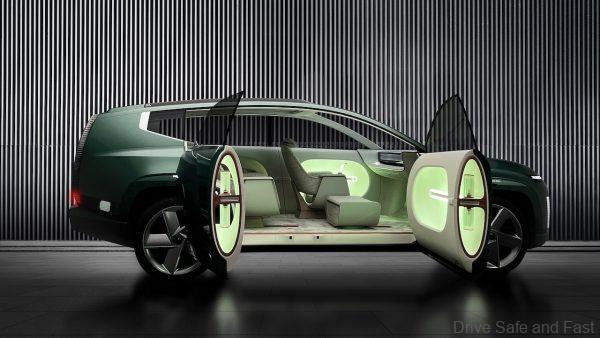
The SEVEN Concept also features a flat floor, pillarless coach doors and a retractable control stick that is hidden when not in use. The seating arrangement in this concept car is rather unique, with swivelling lounge chairs and a curved bench seat – all fully customisable by the driver. They’ve even fitted this concept with a built-in mini fridge. Something tells us that the production model called the IONIQ 7 will be a lot less extravagant than this. The SEVEN also features IONIQ’s signature Parametric Pixel headlights with a Welcome Light Sequence on start up.
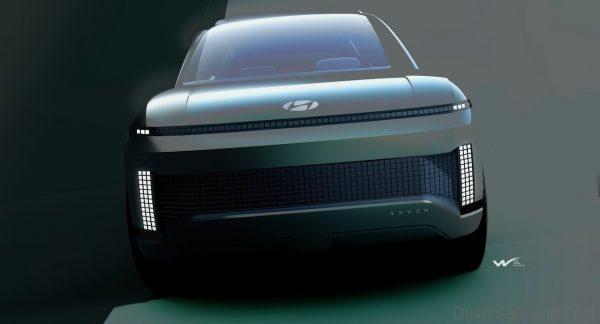
Beyond just making an exciting vehicle, Hyundai also took the opportunity to make the SEVEN a safer and more eco-friendly vehicle concept including a Hygiene Airflow System, UVC Sterilization and more to improve the wellbeing of occupants.
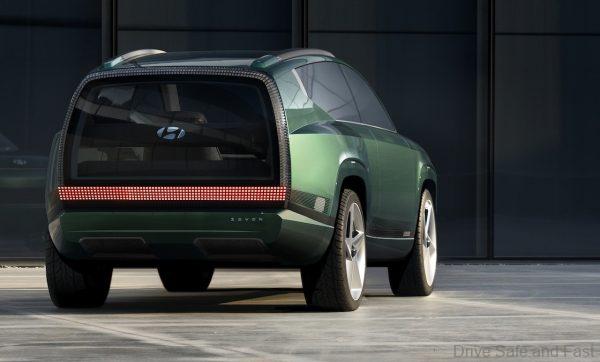
The Hygiene Airflow System takes inspiration from the sophisticated airflow management of passenger aircrafts. In its vertical mode, air is taken in through built in air intakes in the roof rails from which the air travels from above to below, and extracted through the exterior vent behind the rear wheels. In its horizontal mode, the air flows from the slim dashboard to the rear vents.

In terms of materials, the SEVEN Concept features bio-paint on the exterior, mineral plaster, bamboo wood, bamboo carpets, bio resin and renewable paints. They even used antibacterial treatments on the fabric.
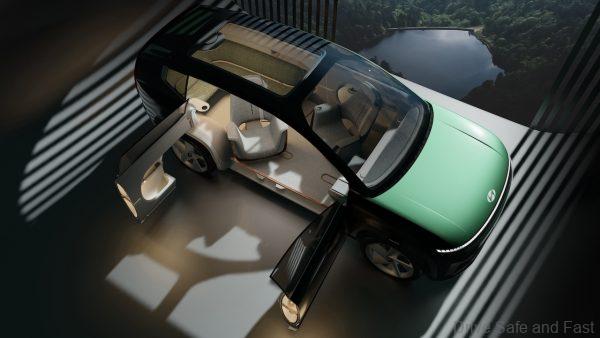
Hyundai Motor has focused on developing vehicles to always ensure a safe and healthy travel experience. SEVEN uses various eco-friendly materials while offering segment-leading hygienic features, such as Hygiene Airflow System and UVC Sterilization.
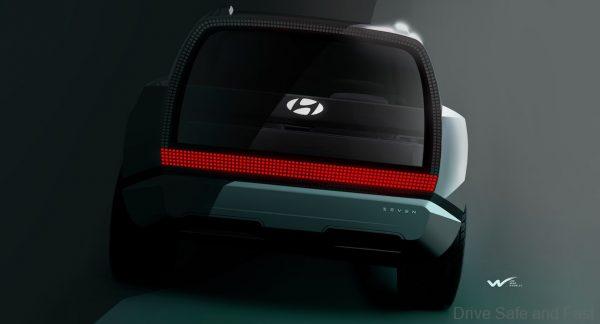
Hyundai applied bio-paint to SEVEN’s exterior and hygienically-recycled and renewable materials throughout the interior. Mineral plaster, bamboo wood and carpet, bio resin and interior paint are based on renewable sources that can reduce pollution from the production process. Extensive use of copper and hygienically treated fabric with proven antibacterial functions ensure all surfaces inside SEVEN remain clean at all times.

